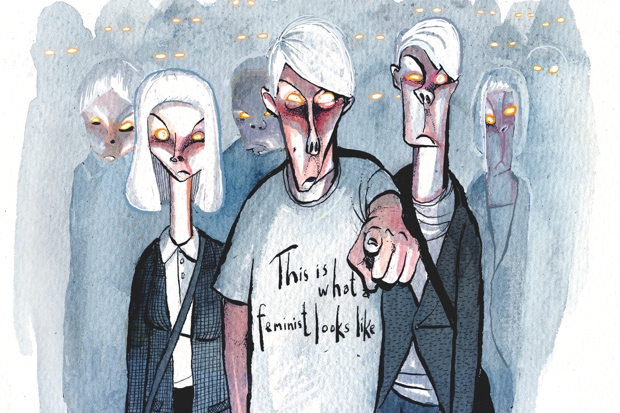Have you heard the one about the students who said clapping could cause anxiety? Or the students who banned sombreros? Of course you have. You can’t move these days for tales of Britain’s blue-haired belligerents and their campus war on free speech, ‘fascist’ tabloids and fancy dress. Student leaders have become a national embarrassment – and with good reason. They’ve turned everything that was good about being a student – broadening your mind, having fun, being free – upside down.
But it’s become a little too easy to bash students, to pretend that a new generation of so-called ‘snowflakes’ are single-handedly destroying Enlightenment values. Student union politicos are, after all, entirely unrepresentative. Turnout in SU elections is tiny. And they like it that way. At its conference last year the National Union of Students rejected a motion – put forward by a reformist slate – to introduce ‘one member, one vote’ for its presidential election. It was blocked – for the third year running. At that same conference, Malia Bouattia, wont to wax lyrical about the ‘Zionist-led media’, was voted in.
Student unions are entirely insulated from their members, if not actively hostile to them. Rather than sticking up for students’ rights they curtail them, for fear of what terror might be unleashed by a Jimmy Savile costume at a college party. The understandable indifference of most students to university politics has allowed unions to censor and shriek in their name.
What’s being missed, though, is the part that university administrations play in all this. They are colluding in the censorship. Last week, spiked released the 2017 findings of the Free Speech University Rankings, our annual league table of UK campus censorship. Student unions have continued to be belligerent – 64 per cent of them are marked as ‘Red’, meaning they actively censor speech and speakers on campus. But universities are catching up quick. The rate of ‘Red’ university administrations has shot up from 15 per cent last year to 23.5 per cent this year. And there are now more student unions than universities which are ranked ‘Green’ – meaning they have a hands-off approach to free speech.
Universities, it seems, are now leading the charge in cracking down on free speech: discussion of religion is restricted by nearly half of universities, while talking about transgenderism is subject to rules and regulations at around a third of institutions. Panicking about Islamophobia and transphobia might seem like typical student concerns. But these policies stem more from universities than student unions. The result is that universities now stand in the way of students who want to question orthodoxy, whether that be ancient faiths or the gospel according to Caitlyn Jenner.
And universities don’t only censor by stealth, smothering students in bureaucratic measures. They also engage in knee-jerk bans, just like student unions. In December, King’s College London removed a poster of alumnus and former Archbishop of Canterbury Lord Carey because of his views on gay marriage. The University of Sheffield kicked a student off his course last November for quoting a Bible verse in a Facebook post that called homosexuality an ‘abomination’. At Nottingham a few years back, a group of students were fined for singing a crude, necrophilia-referencing chant. And various universities, including the University of Kent and the University of East London, have banned Islamic preachers.
This new puritanism wasn’t enforced by student leaders. That gives them too much credit, and lets universities off the hook. The reason censorship has gone unchecked is because it exists within institutions that affirm – if not share – their outlook. Indeed the idea that people are fragile, easily swayed and only ever one firebrand away from launching a pogrom is entirely mainstream. Though Theresa May spoke out against ‘safe spaces’ in the Commons last year, her anti-terror measures in the Home Office ratcheted up restrictions on ‘non-violent extremists’ across the country. She slammed student ‘safe spacers’ while planning to ‘safe space’ the entire nation.
Over the past few years, students across the country have begun waking up to how much their unions are entirely opposed to their academic and personal freedom. Students have campaigned to overturn newspaper bans. And a national movement has even arisen to disaffiliate individual unions from the NUS. Clearly, Bouattia and her illiberal ilk do not speak for all students. But those looking to tackle censorship must also focus on universities themselves. They hold ordinary students in just as much contempt.
Tom Slater is coordinator of spiked’s Free Speech University Rankings.







Comments